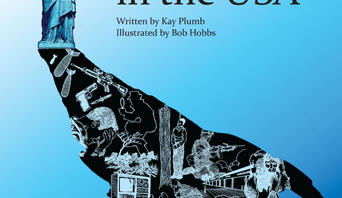Why is the entire “conservative” wing of our country obsessing about debt reduction right now? Is debt reduction actually our biggest problem? Or is debt reduction just a distraction, a dodge?
Our leaders leaning-to-the-right seem to think that citizens of the USA are so weak-minded and easily distracted they will completely forget that their budget was balanced the last time one of their chosen took up residence in the White House. That after 8 years of George Junior’s leadership—including two unfunded wars, massive deregulation and unbridled speculation—our whole economy imploded. Just flat fell in on itself. We are supposed to be so stupid and gullible that we will forget what happened to us in the past, as well as what is happening to us at the moment, and just buy whatever line they happen to be selling… which is whatever line they feel will get them into the White House again, whether it’s true or not, and whether it makes any sense or not.
Every economist alive (except the ones being paid by right-wing think tanks) is trying to telling us that debt is not our most pressing problem right now. That getting people back to work is our most pressing problem right now. So why all this preoccupation with balanced budgets and the national debt? The best defense is a good offense…
The human shadow (the part of ourselves we just don’t want to admit) comes in layers, as does the subconscious mind where it dwells: there’s a personal layer, and there's a collective layer. So we each have a personal shadow that can get out of hand—for example, we might make fun of how other people look if we’re insecure about our own attractiveness. And then we each participate in a collective shadow that can get out of hand—for example, we accuse other groups of evil when we can’t bear to face the evil our own group has done.
An excellent example of the latter type of projection occurred in US history at the end of WWII. After a saturation bombing of German cities by British and US forces that culminated in a firestorm at Dresden which was so intense it literally melted 100,000 people, the USA dropped two atomic bombs on a country that was trying to surrender to Allied forces.*
At Hiroshima and Nagasaki  150,000 people were killed instantly, and tens of thousands later died slowly and hideously from radiation poisoning. We’re talking more than 300,000 dead people here, and not soldiers, either—these were all completely innocent civilians who were going about their business in big cities. Gruesome. Way beyond gruesome.
150,000 people were killed instantly, and tens of thousands later died slowly and hideously from radiation poisoning. We’re talking more than 300,000 dead people here, and not soldiers, either—these were all completely innocent civilians who were going about their business in big cities. Gruesome. Way beyond gruesome.
Yet soon after these events, unable and unwilling to comprehend that such colossal evil could be perpetrated by their own country, citizens all over the USA (spurred on by their leaders), began to obsess about how dangerous Russia was, and to build bomb shelters in their backyards. Enter the ridiculously expensive and totally unnecessary Cold War.
I grew up with one of those bomb shelters in my backyard. (No lie: my Dad had an actual bomb shelter built on our property in Fort Worth, Texas, in the 1950s. At first it was all clean and full of water and canned goods, later it got dirty and full of spider webs and snakes, and then finally, after many years of neglect, my Aunt Eddie planted iris all over it, so it eventually became a little hill of flowers with a hollow core.) I also grew up hearing stories about how brutal the Japanese were in WWII. No one ever mentioned Hiroshima or Nagasaki or Dresden in my family.
In other words, there is a ‘me against you’ aspect to the personal shadow, and there is an ‘us against them’ aspect to the collective shadow. And projected out onto others, both types of shadow material harm—do actual damage to—the targets of their projections. Not just psychic mumbo-jumbo, real harm.
Debt reduction is not our biggest problem, folks. The shadow looming behind the need to fabricate such cock-eyed stories is our biggest problem.
* Howard Zinn, A People’s History of the United States. New York: HarperCollins, 2003. 421-25.










